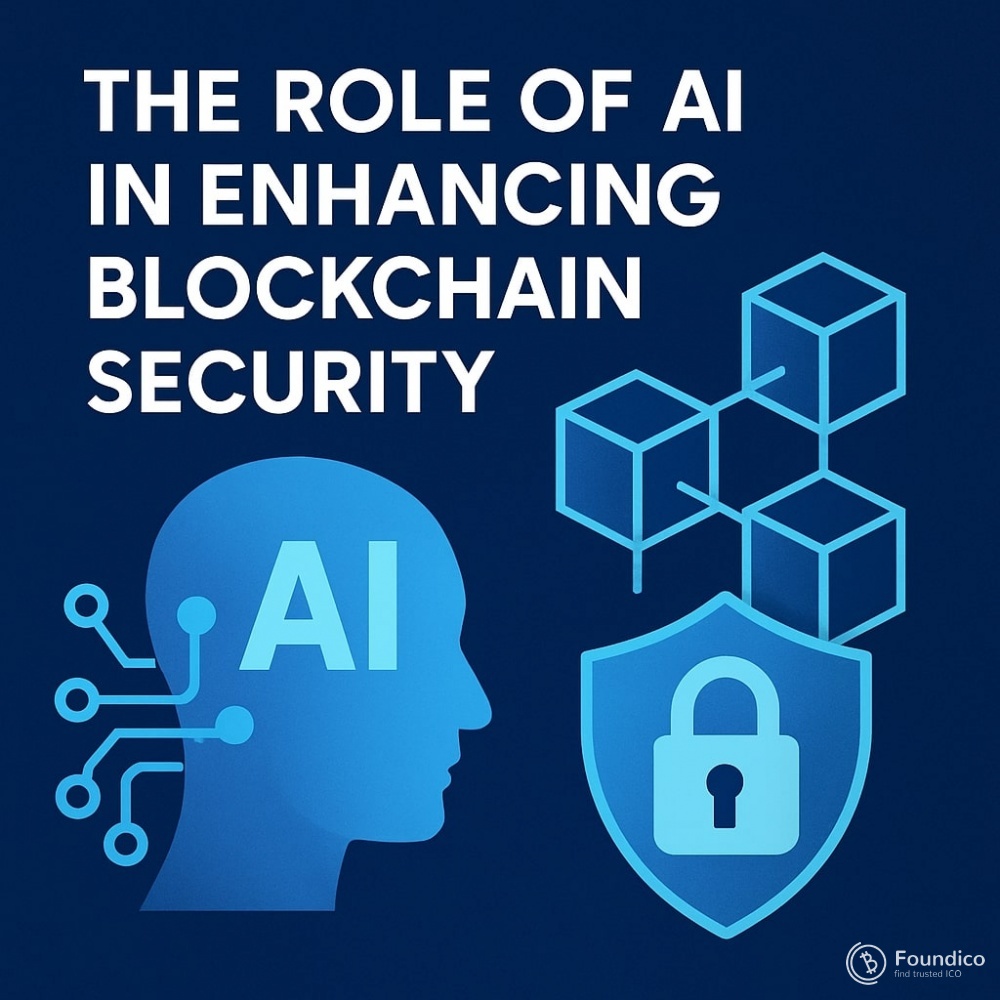The Role of AI in Enhancing Blockchain Security

By Dr. Pooyan Ghamari, Swiss Economist and Visionary
In the rapidly evolving digital era, two of the most revolutionary technologies shaping our future are Artificial Intelligence (AI) and blockchain. Both fields, powerful in their own right, promise to transform industries ranging from finance and healthcare to supply chains and governance. However, when combined, AI and blockchain offer an unprecedented synergy—particularly in the realm of cybersecurity. This article explores the critical role AI plays in enhancing blockchain security, highlighting the challenges, innovations, and future directions of this dynamic integration.
Understanding Blockchain Security Challenges
Blockchain technology, at its core, is celebrated for its decentralized, tamper-resistant ledger system. By distributing data across a network of nodes, blockchain reduces reliance on centralized authorities, mitigating many traditional cyber risks. Yet, blockchain is not impervious to threats. Vulnerabilities persist, including:
-
51% Attacks: When a malicious actor gains majority control of the network’s mining power or stake, they can manipulate transaction records.
-
Smart Contract Exploits: Bugs or loopholes in self-executing contracts can lead to significant financial losses.
-
Sybil Attacks: Fake identities or nodes introduced into the network can disrupt consensus mechanisms.
-
Phishing and Social Engineering: While not a direct blockchain vulnerability, users’ private keys can be compromised outside the chain.
Securing blockchain requires more than traditional cryptographic measures; it demands intelligent, adaptive, and proactive defenses.
How AI Elevates Blockchain Security
Artificial Intelligence, with its capacity for pattern recognition, anomaly detection, and predictive analytics, offers tools that address the evolving complexity of blockchain threats. Here are the key ways AI enhances blockchain security:
1. Real-Time Anomaly Detection
AI algorithms can continuously monitor blockchain transactions and network activity. By learning normal behavioral patterns, AI-powered systems can flag suspicious activities—such as abnormal transaction volumes or unusual node behavior—in real time. This early warning system helps thwart attacks like double-spending or unauthorized changes before they cause damage.
2. Smart Contract Auditing and Verification
Smart contracts are integral to blockchain’s functionality but are often vulnerable due to coding errors. AI-based code analysis tools can automatically scan smart contracts, detecting vulnerabilities, logical inconsistencies, and potential security loopholes much faster and more comprehensively than manual reviews. This enhances trust and reduces the risk of exploitations.
3. Identity and Access Management
Blockchain networks rely on cryptographic keys for access. AI can strengthen identity verification by analyzing user behavior patterns, transaction histories, and biometric data to detect compromised or fraudulent accounts. This reduces risks of key theft and unauthorized access.
4. Predictive Threat Intelligence
By harnessing vast amounts of data from multiple blockchains and related ecosystems, AI can identify emerging attack vectors and predict future vulnerabilities. This proactive intelligence allows blockchain developers and network operators to patch potential weak points before exploits occur.
5. Automated Incident Response
In the event of a detected threat, AI systems can initiate immediate, automated countermeasures—such as isolating suspicious nodes or rolling back malicious transactions—minimizing damage and restoring network integrity swiftly.
Real-World Applications and Case Studies
Several blockchain platforms and enterprises have begun integrating AI-powered security solutions with promising results:
-
Ethereum’s Smart Contract Tools: AI-driven auditing frameworks are now used to scan Ethereum smart contracts, reducing vulnerabilities prior to deployment.
-
Crypto Exchanges: Leading exchanges utilize AI for fraud detection and anti-money laundering (AML) compliance, ensuring secure asset transfers.
-
Decentralized Finance (DeFi): AI models continuously analyze transaction flows and liquidity pools to detect and prevent flash loan attacks and other DeFi-specific exploits.
Challenges and Ethical Considerations
Despite its promise, the integration of AI with blockchain security is not without challenges:
-
Data Privacy: AI systems require access to data, which must be balanced against blockchain’s privacy and anonymity goals.
-
Algorithmic Bias: AI models must be carefully trained to avoid false positives/negatives that could unjustly disrupt legitimate transactions or users.
-
Complexity and Cost: Developing and maintaining sophisticated AI defenses can be resource-intensive, potentially limiting adoption for smaller networks.
As a Swiss economist and visionary deeply involved in emerging technologies, I emphasize the importance of a multidisciplinary approach to these challenges, blending cryptography, machine learning, regulatory frameworks, and ethical governance.
The Future Landscape: AI and Blockchain Security
Looking ahead, the convergence of AI and blockchain will become even more critical as digital ecosystems grow in scale and complexity. Emerging trends include:
-
Quantum-Resistant AI Algorithms: Preparing blockchain security for the advent of quantum computing threats.
-
Decentralized AI Models: Leveraging blockchain’s decentralized nature to train and deploy AI models collaboratively and transparently.
-
Self-Healing Networks: Autonomous blockchain systems empowered by AI that can detect, adapt to, and recover from attacks without human intervention.
Together, AI and blockchain have the potential to create not just more secure digital infrastructures but also more resilient, trustworthy, and intelligent global networks.
The fusion of AI and blockchain security is more than a technological enhancement; it represents a paradigm shift in how we safeguard decentralized systems. By combining blockchain’s immutability and decentralization with AI’s adaptive intelligence, we are poised to confront and mitigate cyber threats more effectively than ever before.
As a visionary economist witnessing firsthand the transformative power of these technologies, I advocate for continued innovation, collaboration, and ethical foresight to fully realize the promise of AI-enhanced blockchain security.
Dr. Pooyan Ghamari
Swiss Economist and Visionary
